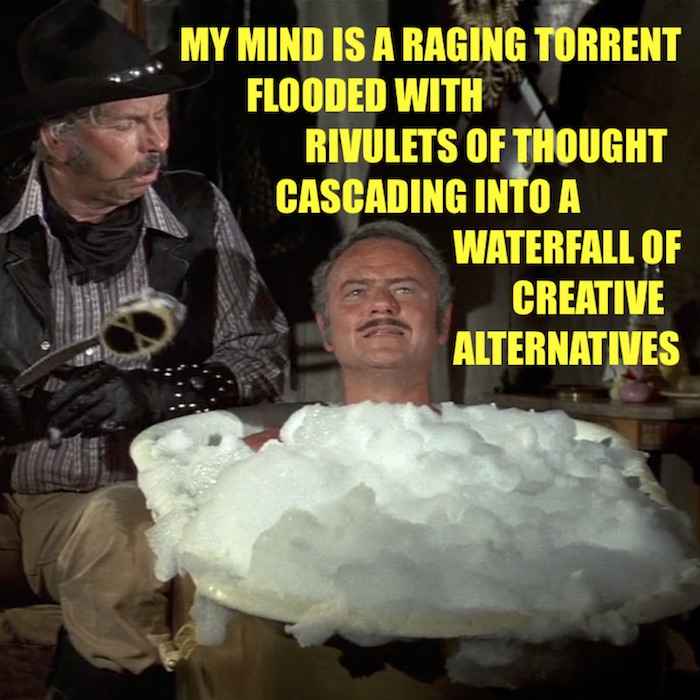I highly recommend Eddie Huang's autobiography Fresh Off the Boat, on which the TV sitcom is loosely based (more on that in a moment). Huang's writing is raw, passionate, and funny. Just about every page of the book has got something interesting on it. In that respect, I find it's like reading Richard Feynman's collections of stories about his own life.
Among his many adventures, Huang writes about hustling sneakers on the Lower East Side and turning that into a way to support the Obama campaign. He writes about his ill-fated attempt to get hired as a beat writer for the local newspaper (I'll never hear the phrase "that face" the same way again). He writes about being stomped day after day, Rudy Ruettiger-style, playing high school football.
In a more serious vein, Huang writes about the deep influence hip hop culture had on him, and how it spoke to him as an outsider. He writes about his lifelong love of food and his passion for cooking. He also writes about his experiences with racism and about the violence he grew up with, both on the streets and at home, where Eddie and his brothers were routinely beaten by their parents.
I see loose parallels with Bruce Lee in the life stories of both Huang and his father, in that all three men started as Chinese street punks and grew up to achieve versions of the American Dream. I'm not the only one to see this connection — a friend pointed it out to me recently.
Part of what I find fascinating about Huang, in both his writing and the bits of him I've seen on YouTube, is how strikingly he differs from stereotypes of Asian males — again, a very loose Bruce Lee parallel.
At this point, if the only "Fresh Off the Boat" you know is the TV show, you may be wondering if I'm talking about the same Eddie Huang. Street fights? Domestic violence?
The TV show is indeed very different from the book. By comparison, imagine being told The Cosby Show was based on The Autobiography of Malcolm X. (Please note: I'm not comparing Huang to Malcolm X by any means; I'm just trying to give an idea of how the show might shock someone who was expecting the book, and vice versa. Also — full disclosure — I have not actually read The Autobiography of Malcolm X.)
Huang has spoken out more than once about how the show has sanitized and trivialized aspects of his life that are important to him:
I can understand his disappointment in the show, but I can also understand the question "What did you expect?" Huang admits he naively thought he could "change things" much more than he did. Perhaps this is yet another similarity to Bruce Lee, in that Huang had about as much chance of telling his story in his own way as Lee did of starring in Kung Fu. Who knows, maybe someday there will be an Eddie Huang 2.0, just as there was a Steve Jobs 2.0, who will take what he's learned from bitter experience and find new and bigger ways to change the world.
I'm glad Huang did push his way into the show to the extent he was able to. He tells a story about how one of the writers thought it would be funny to have a line about how Huang's grandfather used to castrate pigs with a stick. Huang's actual grandfather sold mantou (Chinese buns) on the street, took a factory job from a customer who admired his work ethic, and eventually took over the factory. Huang did not appreciate the Boratification (a term I just made up) of his grandfather, nor the fact that the writer could not understand why Huang was horrified. The line was eventually changed.
I enjoy the show. With one exception, I find all the characters very likable and funny. I enjoy the show separately and differently from how I enjoy the book. For better or worse, it is simply a different thing.
In the months leading up to the show's premiere I wasn't sure what to expect from an Asian family sitcom. Does that sound strange? What's so hard to imagine about a network sitcom? It just goes to show how the absence of Asians on TV had affected me. Fortunately, by the end of the pilot episode I was cured of that befuddlement. The show seems as "normal" as any other TV show, and that feels good.
Part of what feels good is not only seeing faces like mine, but seeing memes from Asian life being aired in mainstream American comedy. In one episode, the mom wants to use "white flower oil" on Eddie's broken arm. It was a passing reference, and I doubt it stuck in many non-Chinese viewers' minds, but it was there. Who knows, maybe it will be repeated enough that white flower oil will be recognized for what it is: my people's tussin, my people's Windex.
Do I see myself in the show? Not really, but I've seen comments from friends and strangers, Asian, Jewish, and black, who say they do, and I like that too.
